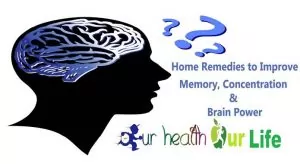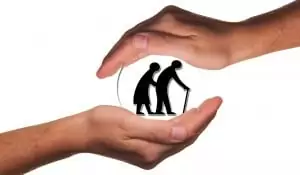Stress is a part of daily life, but it affects some people more than others. Here are some effects of holding on to stress that are worse than what you think.
Stress is harmful. It is a part of daily life, but that does not mean it does not suck your energy and will to live. It sucks your desire to improve yourself, and even dents your relations with others, making you feel as though you do not want to see any of them in your life – even your family and friends.
Even though stress can sometimes help you to rise above challenges and deal with issues more efficiently, daily going through stress can affect your body and mind in so many ways, leading to more serious effects.
Here are some dangerous symptoms of stress, and make sure you deal with it as soon as they show up.
Fatigue
Anxiety might be keeping you tossing and turning in bed at night, but the effects of stress can lead to the release of cortisol into the bloodstream – simply because your brain knows you are freaking out over an issue or someone.
Cortisol has a good role to a certain extent – it increases your heartbeat, gives the brain greater levels of oxygen, and supplies higher levels of energy to your body that help it fight off the stress. However, when you frequently go through stress, the brain reduces the amounts of cortisol it releases into the bloodstream, and this makes you irritable and tired all day. The good news though, is this – working out for about three hours a week will help you maintain the cortisol levels, so exercise is a good option for fighting stress.
It messes with your libido

Among the many effects is affecting the production of estrogen in the body, which helps in keeping your reproductive system in check. That will automatically result in a reduction in your libido.
To combat the problem, ensure you concentrate on eating a healthy diet, and reduce your intake of processed food until you get back control of your stress levels.
It interferes with digestion
This may seem like one of the most unlikely effects, but it actually happens. People usually note and associate knots in your stomach with anxiety and uneasy feelings, but chronic levels of stress are more than that – they interfere with the hormones that your thyroid glands release, and these hormones are responsible for regulating your metabolism as well as other functions of the body.
When the hormones are interfered with, it can result in constipation and indigestion, among other effects. When you feel the symptom is overwhelming, relax by releasing your stress at the gym or an exercise session, drink plenty of fluids, take laxatives if you need to, and increase your fiber consumption.
Acne and other skin conditions

One of the ways of dealing with the issue is using birth control pills in women, or when these conditions occur, you can use a topical skin treatment. The effects of stress can also appear on the skin in form of rashes, ad this is because it interferes with the functioning of the immune system. This can also result in flare ups of eczema or staph, a skin infection.
Forgetfulness
This might be rare, but it still can occur, especially in cases of extreme trauma such as PTSD. It can also happen when you feel your life is under threat, or when a loved one is under threat, and it often brings a feeling of intense helplessness and fear.
This negatively affects your hippocampus on an intense scale, as it makes this region of the brain shrink. This leads to a problem when you try to remember events, facts, lists, or longer gaps of time ranging from minutes to even days. Stress also causes damage to your ability to form new memories as well.
Weight gain
Among the effects of cortisol is that it encourages the body to store fat. In fact, a study published by the University of Kentucky revealed that dieters who participate in stress management are more successful at their weight loss goals, compared to dieters who go through high stress levels.
The connection could also be because of binge eating. The more stressed you are, the more you will want to eat unhealthily as a comfort mechanism. In addition, another study also revealed that women who were constantly under stress metabolize sugar and fat different, as opposed to women who do not experience anxiety.
Ruins your nails
Anxiety can lead to the most annoying coping mechanisms, and among these is the habit of biting nails. Besides spoiling your nails, it can also lead to infections of your nails and hands, since you use them for almost every task.
To beat this habit, it is important to moisturize your nails on a regular basis, and wearing bandages on the fingers to help in reducing the damage.
Hair loss
Spikes in the levels of androgens do not just make the skin break out, they also lead to hair loss, as the hair will shed more than usual. The effect is not permanent though, and eating a balanced diet can helping returning the cells in the follicles back to normal.
Backaches
The blood pressure and heart rate will increase when you are stressed out, while the body releases hormones that assist your responses. However, tis unfortunately leads to tightening of the muscles, and amplify the aching feeling. It is therefore important to stretch your muscles and exercise will also relieve some of this tension.
Conclusion
Stress has so many negative effects on the health of your body, and that is why you need to deal with it as soon as it occurs. You can explore various solutions as well, including exercise, eating a healthy diet, and sleeping, so that your body gets back to normal. One thing to avoid though is turning to drugs or alcohol (more on that at the recovery village.com), and use healthier ways of coping with it.







